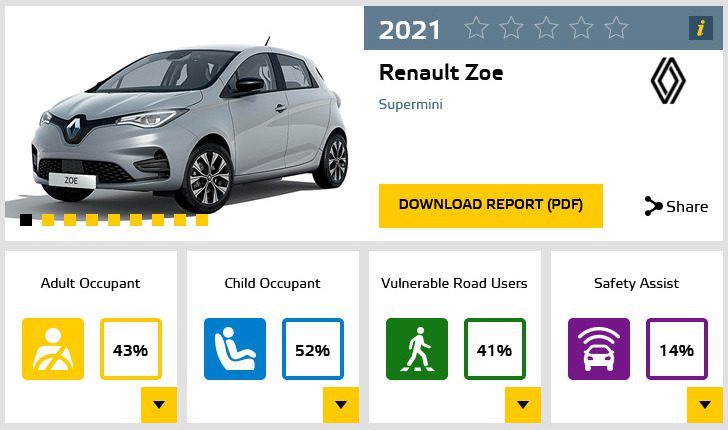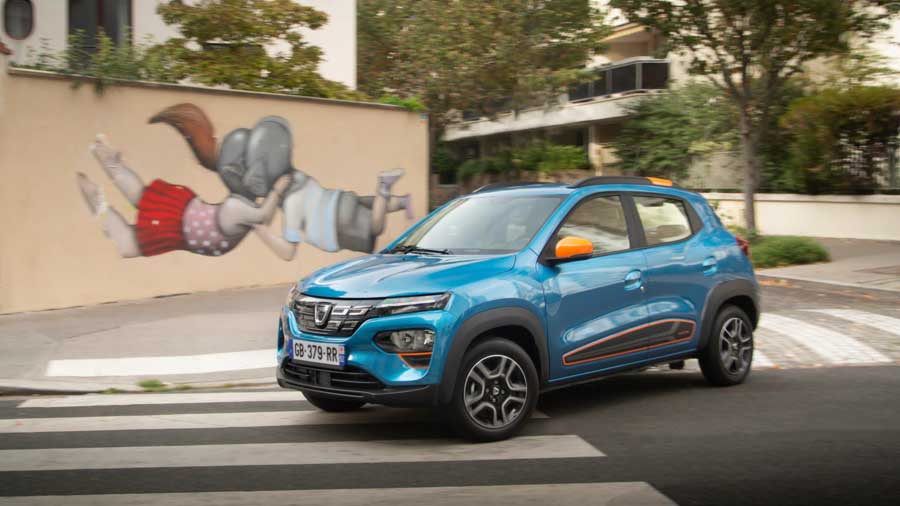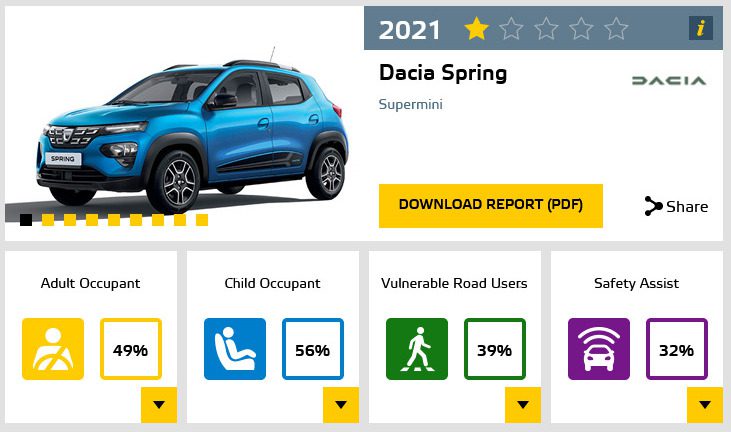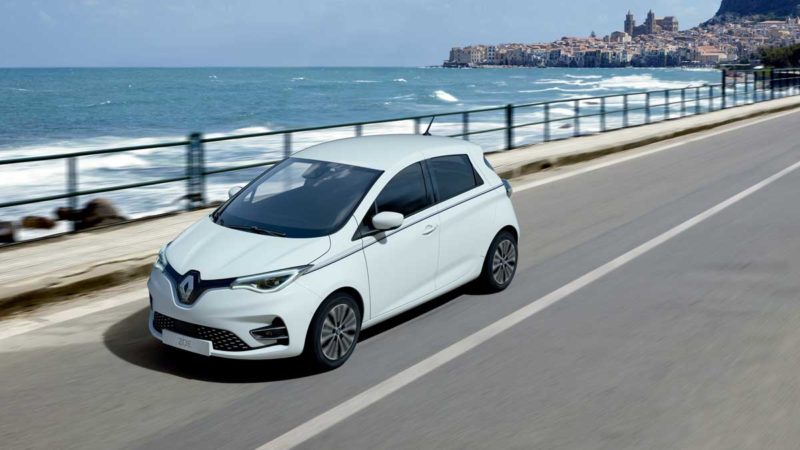Europe’s cheapest electric car, the Dacia Spring, and the latest generation Renault Zoe have suffered a blow in the latest European safety ratings, recording a score of one and zero respectively out of five.
The new scores are a major embarrassment for Renault, whose Zoe electric hatch had an early advantage on the EV market, having been introduced in 2013, particularly as many electric cars quite capably achieve five star ratings, as can be seen in our reporting here.
Secretary general of Euro NCAP, Michiel van Ratingen said of the results: “Renault was once synonymous with safety. The Laguna was the first car to get five stars, back in 2001. But these disappointing results for the Zoe and the Dacia Spring show that safety has now become collateral damage in the group’s transition to electric cars.”
The Renault Zoe has previously been an award-winner and a best-seller in its home market of France, topping the list in October. (Although despite winning awards it did not do well in Australia and it was pulled from the local market in late 2020.)
Likewise, the budget Dacia Spring – which itself is based largely on Renault’s China-made City K-ZE – made it to number two of October’s EV sales in France.
But the latest safety results could dampen the French enthusiasm for the popular electric hatches.
Renault’s failure to introduce new safety features means it is lagging behind other budget models in the technology department, and to add injury to insult Renault switched some existing safety features out with less effective ones in its latest incarnation according to Euro NCAP.
The latest generation Zoe was debuted in 2020 as a facelift, and featured various battery upgrades but no additional safety features, it says.
Meanwhile, head and chest-protecting seat-mounted side airbags were replaced by a less effective chest-only airbag.
This has had the effect of reducing occupant protection, while a lack of effective crash avoidance technology as standard meant the Zoe scored just 14% on overall collision safety.
Euro NCAP criticised the Zoe for lacking fatigue detection systems. Although lane detection and automatic emergency braking are available as options on the Zoe, it was not included in the latest testing round.
The Zoe also failed due to conflicting information between Renault and the Isofox child restraints, despite child occupant ratings registering its highest score of 52%.
“The new ZOE offers poor protection in crashes overall, poor vulnerable road user protection and lacks meaningful crash avoidance technology, disqualifying it for any stars,” wrote Euro NCAP.

The Dacia Spring managed to score one star, but was still slammed by the safety body just months after it was shortlisted for the Auto Best 2022 “Best Buy Car Europe 2022” final.
Describing Dacia as “masters of frugal engineering”, the safety body also criticised the Spring for its lack of lane assistance systems and emergency braking.
It also lost points for a lack of visibility of Isofix child restraint anchorages (although they are present), while adult occupants were particularly at risk because of the high forces needed to open the doors after an impact.

“Only a few months ago, Dacia claimed that they were ‘preoccupied with always increasing safety for those on board’ and that their cars always have passenger safety improved,” said van Ratingen.
“That’s clearly not the case: not only do these cars fail to offer any appreciable active safety as standard, but their occupant protection is also worse than any vehicle we have seen in many years.
“It is cynical to offer the consumer an affordable green car if it comes at the price of higher injury risk in the event of an accident.”

Also rated in the latest NCAP tests was the BMW iX large electric SUV and the Mercedes-Benz EQS electric sedan, which unsurprisingly have bags of safety-assist technology enabling them to score five out of five stars, including auto emergency braking, lane assistance systems, speed assistance and active bonnet features.
There are reports that Dacia may enter the market in Australia at some point, and if so it would likely do so under its own badge instead of being renamed under Renault as it has in New Zealand. Renault is not likely to bring another electric model to Australia until at least 2023, starting with its Megane e-Tech small SUV.

Bridie Schmidt is associate editor for The Driven, sister site of Renew Economy. She has been writing about electric vehicles since 2018, and has a keen interest in the role that zero-emissions transport has to play in sustainability. She has participated in podcasts such as Download This Show with Marc Fennell and Shirtloads of Science with Karl Kruszelnicki and is co-organiser of the Northern Rivers Electric Vehicle Forum. Bridie also owns a Tesla Model Y and has it available for hire on evee.com.au.

